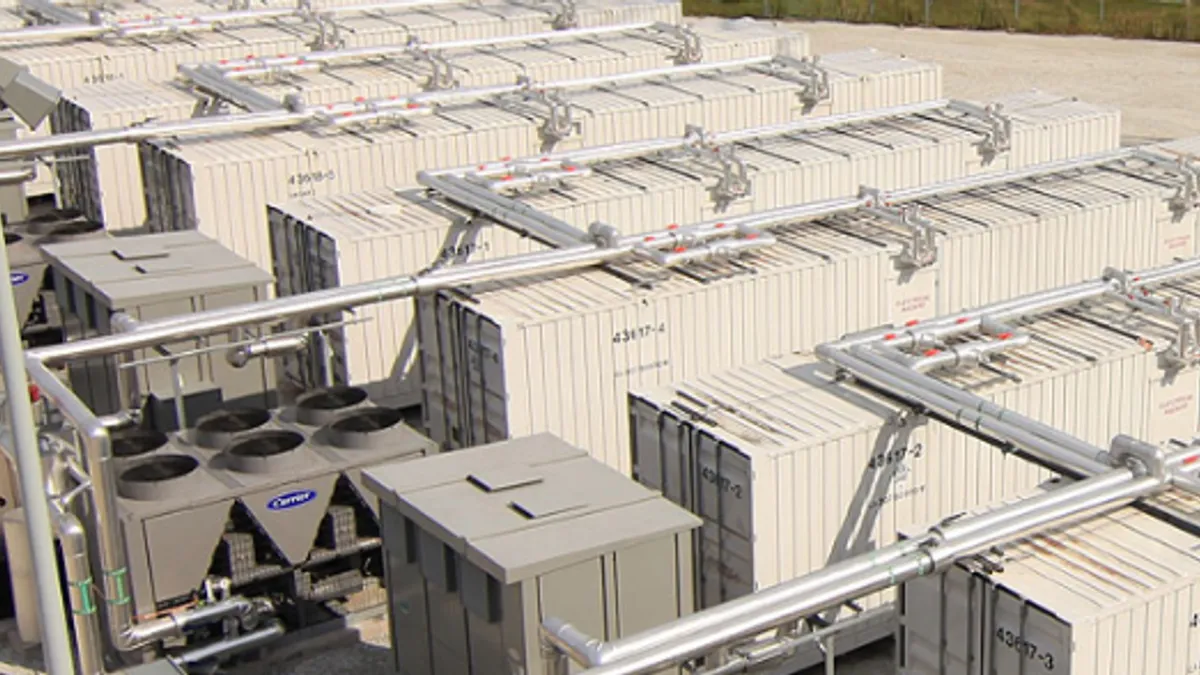Dive Brief:
- AES Energy Storage this week announced a landmark battery purchase, signing a deal with LG Chem for 1 GW of lithium ion batteries that it will then supply to a wide range of customers for grid storage, Fortune reports.
- That's sufficient storage for 250 MW to 1 GW of storage projects, depending on how they are deployed. For reference, GTM Research believes there were 220 MW of storage connected to the United States power grid this year — less than a fourth of the capacity of AES's procurement.
- The storage buy, potentially enough to temporarily power a small town, is one harbinger of a global trend: Navigant Research has predicted more than 11 GW of storage capacity will be installed annually by 2020 across 22 countries.
Dive Insight:
Battery storage has been a growing story for the United States' electric grid, but even so, AES's announcement this week is surprising for its scale. The 1 GW multi-year agreement (with the option to procure more storage), will help lower costs, improve reliability, and reduce emissions, the company said.
The arrangement will "provide utilities, developers, and businesses access to high quality batteries at the best prices as part of the complete Advancion grid storage solution," said John Zahurancik, president of AES Energy Storage. "LG Chem is one of our most trusted battery partners and this agreement provides a new scale of activity to serve announced projects as well as installations under development by our utility partners.”
Earlier this year, a report prepared for the Australian Renewable Energy Agency predicted battery prices will fall 40-60% over the next five years, setting off a storage boom that could look similar to the growth in rooftop solar. Over at Telsa, the team is shooting for battery prices in the $100/kWh range by the end of the decade.
According to AES, the global grid-scale storage sector has entered "a new growth phase," with more than 1,400 MW of projects announced or in operation today, compared with less than 60 MW just six years ago. The company previously announced installations for various customers in six countries totaling 384 MW in operation, construction, or late stage development, representing the world’s largest fleet.
The batteries will be sourced from LG Chem’s manufacturing and supply chain for electric vehicles, and Fortune reports there have been rumors that Tesla is mulling a deal with the Korean company as well, in addition to its traditional supplier, Panasonic.














